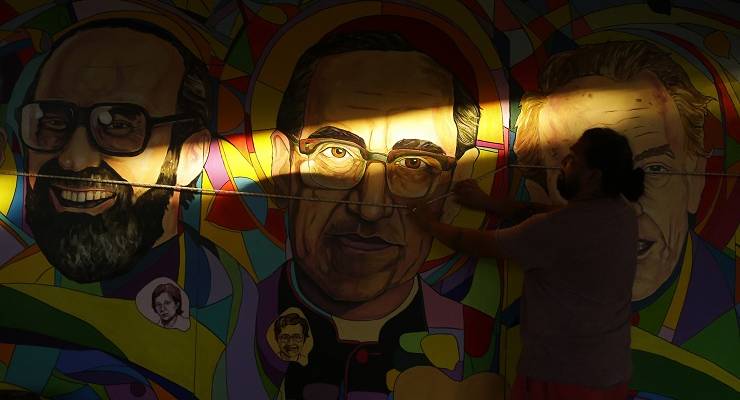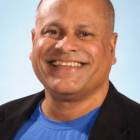
Last weekend, on November 16, marked the 30th anniversary of the assassination of six leading Latin American intellectuals in El Salvador.
You probably won’t hear much about it when other 30-year-old events are also being commemorated — such as the Democracy Movement in China, the fall of the Berlin Wall, the Velvet Revolution in Czechoslovakia, and political upheavals in Poland and elsewhere in Eastern Europe.
But El Salvador offers important insights into the real character of international relations and the politics of memory.
The six intellectuals were Jesuit priests, murdered on the campus of the Central American University in San Salvador, along with their housekeeper Elba Ramos and her teenage daughter Celia Marisela Ramos. The assassins belonged to the elite Atlacatl Battalion, trained and armed by the United States. But the killings by US-trained and armed death squads began at the start of the decade, with the murder of archbishop Oscar Romero in 1980.
The death squads operated in Latin America for a reason: the Catholic Church under the influence of Pope John XXIII had begun trying to reclaim the radical pacifist message of the gospel. Bishops, priests, nuns and lay persons began devoting themselves to the oppressed, supporting what the Pope called the “preferential option for the poor”.
Sometimes known as “liberation theology”, these ideas were anathema to Latin American elites and to the United States government, whose own preferential option was to make the region’s resources available for the American economy in the manner desired by American corporations.
Accordingly, the US went to war against the Catholic Church in Latin America in the 1980s, training local militaries at the School of the Americas in Fort Benning, Georgia. Today called “The Western Hemisphere Institute for Security Cooperation”, it boasted, that liberation theology was “defeated with the assistance of the US Army”.
There is, as well, an Australian angle to these events: 10,000 refugees came here from El Salvador in the 1980s. Most had a genuine fear of persecution but it was credibly reported that a minority of those arriving under the Humanitarian and Special Humanitarian Program were related to the death squads.
Father Bruno Morotti, a Salesian priest who worked mostly in Melbourne’s south-east between 1988 and 1995, met a man at the Springvale migrant hostel who admitted responsibility for the murder of Archbishop Romero before coming to Australia, as detailed by Professor Des Cahill in his obituary for Morotti around a decade ago.
Despite the much greater publicity given to human rights violations in the Soviet Bloc, from 1960 to 1990 the “numbers of political prisoners, torture victims, and executions of nonviolent political dissenters in Latin America vastly exceeded those in the Soviet Union and its East European satellites”, as John Coatsworth writes in the Cambridge History of the Cold War.
As observed in Proceso, the journal of Central American University, if Václav Havel or other Czechoslovakian dissidents had been in El Salvador, “they would have woken up one sinister morning, lying on the patio of a university campus with their heads destroyed by the bullets of an elite army battalion”.
Another Latin American journalist, Julio Godoy, remarked that Eastern Europeans were “luckier than Central Americans”. He said “the main explanation for the fearless character” of the students in Prague was that “the Czechoslovak Army doesn’t shoot to kill”.
There has always been difficulty in trying to grant these crimes greater exposure. Father Ignacio Martín-Baró, one of the slain Jesuits, was an eminent social psychologist. A few weeks after the assassinations of November 16, the American Psychological Association had a conference in Boston and a session was devoted to father Martín-Baró.
The Boston Globe, at the time the paper with the best Central America coverage in the country, covered the conference. The attending reporter didn’t mention him or the session. Instead it reported on a paper about how male facial expressions attract women.
All this is in sharp contrast to publicity given to the fragile tyrannies of Eastern Europe. Says a lot about the politics of memory.








And the Vatican’s non-response to all these murders can be laid at the door of John Paul the fascist II.
Veteran American diplomat Nicholas Burns, gave a wide-ranging speech, Restoring American Leadership, at a recent Lowy Institute event at the NGV, and was re-broadcast on ABC’s Big Ideas programme. The appalling history of US interventions in Latin America was not once mentioned!